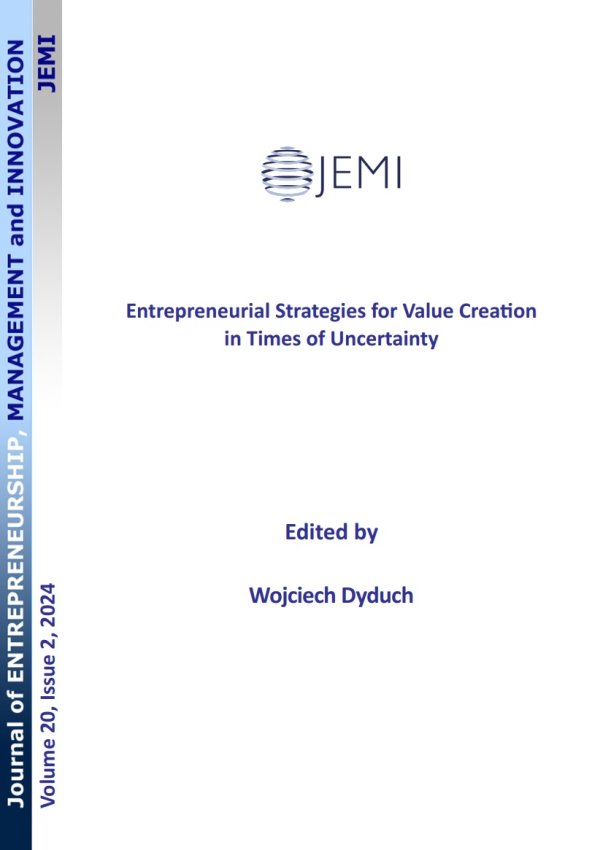Magdalena Graczyk-Kucharska, Assistant Professor, Poznań University of Technology, Faculty of Engineering Management, ul. Jacka Rychlewskiego 2, 60-965 Poznań, Poland, e-mail: This email address is being protected from spambots. You need JavaScript enabled to view it., corresponding author 
G. Scott Erickson, the Charles A. Data Professor, School of Business at Ithaca College, 953 Danby Road, Ithaca, NY 14850, (607) 274-3011, USA, e-mail: This email address is being protected from spambots. You need JavaScript enabled to view it. 
Abstract
The study looks at developing a person-organization fit model based on the unique characteristics of the new generational cohort, Generation Z, now entering the workforce. Theory suggests competitive advantage may come to a firm based on its unique human capital, the human resources it employs and develops. Further, organizations will be more successful in attracting the valuable employees they seek if they can provide a workplace appealing to them in terms of organizational values, culture, and other aspects that may also include more familiar enticements such as pay and benefits. To address the gap, this pioneering study investigates the context of person-organizational culture for the Z Generation entering the labor market. The key questions answered by the authors when describing the Person-Organization Fit Framework for Generation Z include the differences in how organizational culture appeals to Gen Z men and Gen Z women. The research results are presented in three steps: an analysis of workplace environment elements for Gen Z, correlation analysis between the workplace environment elements required by Gen Z, and presentation of a Person-Organization Fit Framework for Gen Z. From a sample of 3393 students at technological secondary schools in the Wielkopolska Region, the survey results provided evidence of the workplace preferences for this cohort. In addition, results were further analyzed for differences in gender and intended profession. For this region, Generation Z has variable individual needs and wants, some of which can be easily identified (gender, profession) but some of which may be less clear. These research results may be used for designing appealing workplaces taking into account person-organization needs for young people. Based on this novel research, organizations employing the resulting work framework for Gen Z will be better prepared to consider the nature and communication of what they have to offer as well as how they can be flexible in adapting these offerings to unique individuals.
Keywords: organizational culture, Generation Z, Gen Z, human resources






